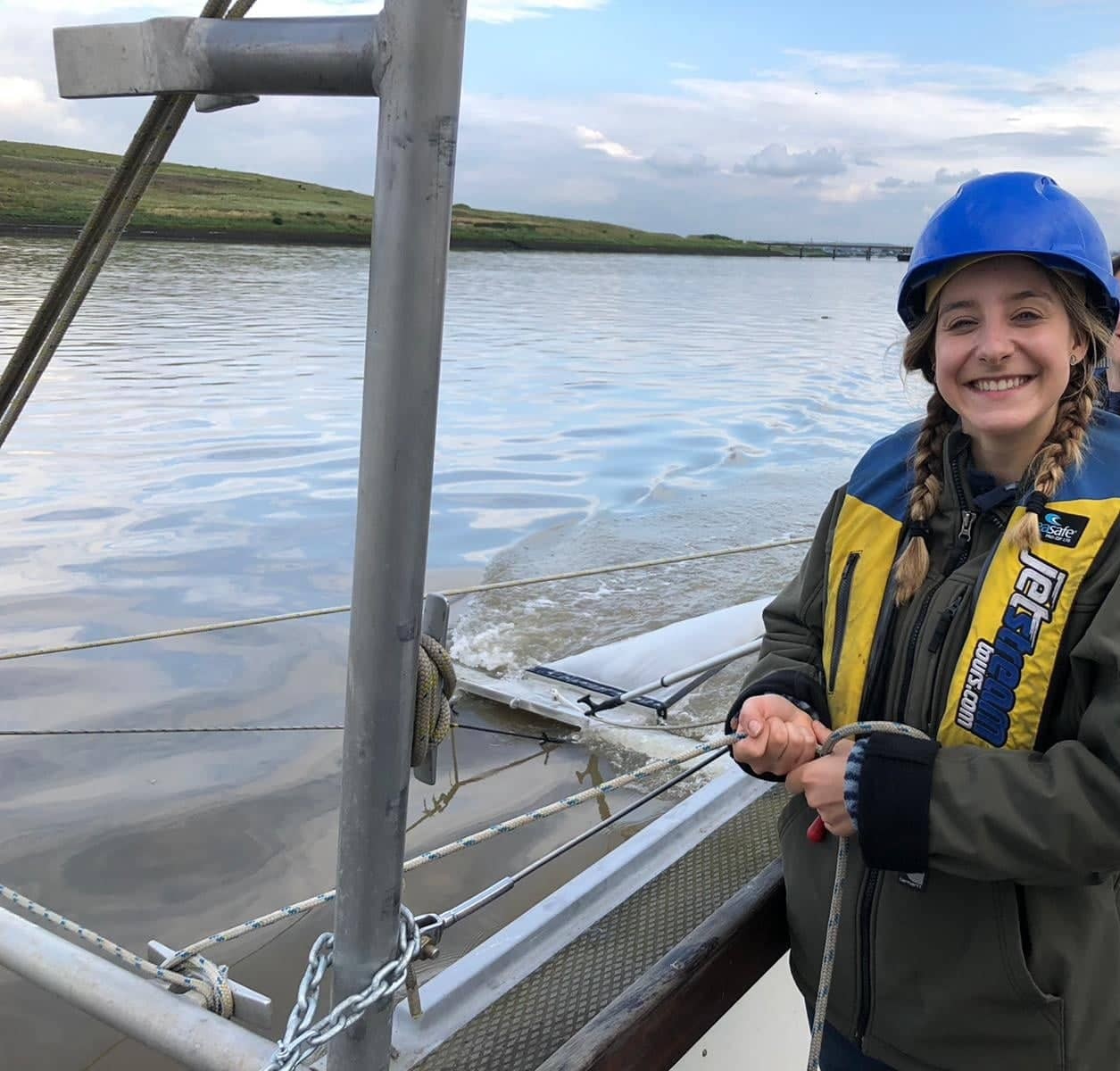QM PhD Student in the Top 3 for the London Student Sustainability Conference
Meet Pauline De Bigault De Cazanove, a Queen Mary PhD student who was selected in the top 3 for the London Student Sustainability Conference! We interviewed Pauline to hear about her research into biodegradable plastics and passion for sustainability.

Could you introduce yourself, what you study and something interesting about you?
My name is Pauline, I am a French PhD student in the department of chemistry at Queen Mary University of London. I always have been passionate about marine wildlife and scuba diving so I quickly became preoccupied by the environmental challenges the ocean is facing today. This is the reason why I wanted to engage in a long-term research project to address one of the major environmental issues of this century: plastic pollution. The aim of my research is to study the degradation process of plastic from a chemical perspective, and how this impacts the natural environment.
Can you tell us more about your research into biodegradable plastics, why is it so key to the plastic pollution crisis?
Plastic materials offer multiple advantages, as they can be easily formulated to be strong, flexible, durable, resistant to corrosion, easily moulded, and tailored to be transparent, opaque, or coloured. However, some of these properties are also responsible for the current global environmental challenge of plastic pollution. If a plastic item is not disposed of properly and enters the environment, it is likely to remain there for a very long time. Recently, there has been a drastic change in the public’s understanding of the drastic impact of plastics on our planet, which has led to a shift in consumers’ attitude, e.g. eco-friendly packaging. Biodegradable plastics offer a sustainable alternative to traditional materials, as they are designed to be decomposed by microbes. To be considered a viable and sustainable alternative, however, it is essential that we understand how these materials break down in the environment and their impact on ecosystems.
What do you think is the future for Biodegradable plastics - how can we help in day-to-day life?
The future of bioplastics offers hope for reducing environmental harm caused by traditional plastics. The use of innovative and renewable resources, like algae, have great potential. I had the opportunity to spend 3 months in secondment at Notpla, a sustainable packaging startup based here in Hackney, which allowed me to learn more about the steps required to produce a sustainable product. As part of the developing process, it is important to evaluate the recycling conditions and the potential environmental impact. To move towards a greener future, the development of bioplastics should be pursued with smarter day-to-day production and consumption practices, ensure proper disposal methods, advocate for eco-friendly policies, spread awareness about the environmental impacts of plastics, and prioritise alternatives, whenever feasible.
How does it feel to be in the top 3 for the London Student Sustainability Conference?
It is truly humbling to be recognised as one of the top three participants for the London Student Sustainability Conference 2024. I feel grateful for this opportunity to contribute to such an important dialogue on sustainability, and I am excited to share my ideas and insights with others at the conference.
What is your top tip to budding future (sustainability) researchers?
Sustainability is a complex and multifaceted field that intersects with various disciplines such as environmental science, economics, sociology, and engineering. My best advice would be to be curious and explore an interdisciplinary approach. I truly believe that keeping a diverse perspective and continuous learning from different fields can lead to innovative solutions and meaningful contributions to the research field of sustainability.
You can attend the London Student Sustainability Conference online or in-person on Wednesday 21st February to support Pauline and other selected students by signing up here.